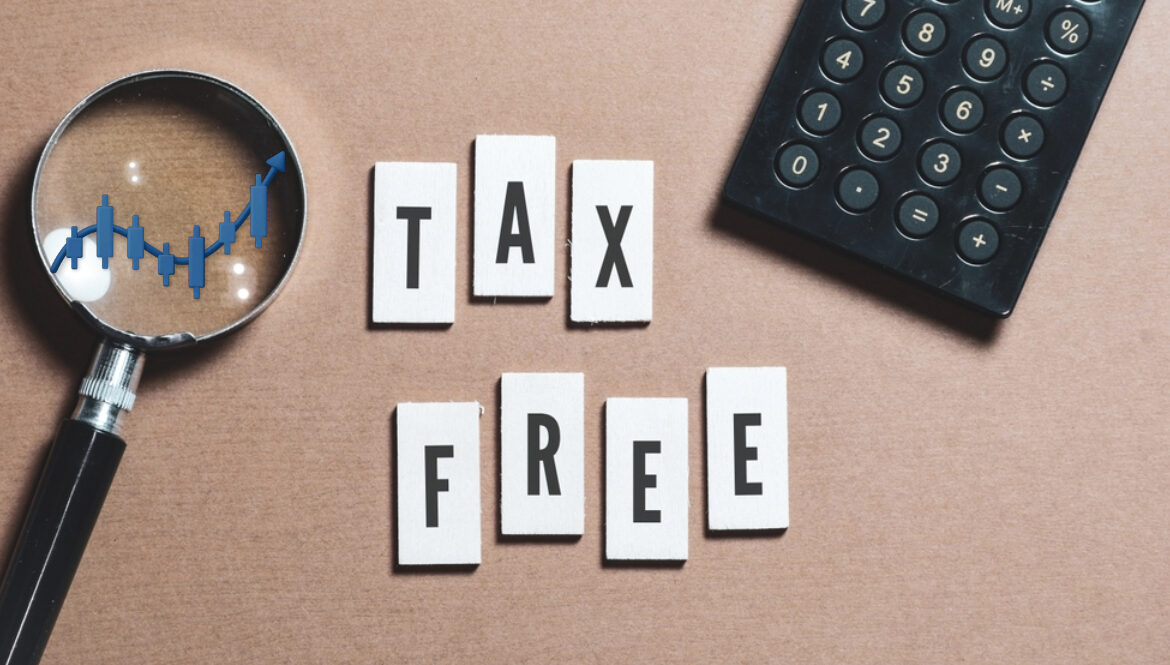Tax considerations are a significant factor for anyone engaging in Forex trading. Depending on where you reside, the profits you make from Forex trading may be subject to various forms of taxation. So, it is vital to learn about various options, including ‘tax-free countries for Forex trading.’
What’s important, there are certain jurisdictions around the world known for their favourable tax treatment of Forex trading.
These countries provide a conducive environment for traders to conduct their activities with minimal tax implications. Here, we’ll delve into some of these ‘tax free countries for Forex trading’.
United Arab Emirates (UAE) and Monaco
The UAE is a popular destination for forex traders. There are no personal income or capital gains taxes imposed on individuals, making it an attractive location for traders looking to retain a larger portion of their profits. Dubai, in particular, has emerged as a hub for forex trading, with its modern infrastructure, business-friendly environment, and strategic location between major financial centres.
Monaco is renowned for its zero-tax policy, making it an appealing destination for high-net-worth individuals and traders seeking to minimize their tax burden.
Moreover, Monaco’s luxurious lifestyle, security, and proximity to major European financial centres add to its allure as a trading destination.
Cayman Islands, Bermuda and Bahamas
The Cayman Islands is a well-known offshore financial centre that doesn’t impose any form of direct taxation on individuals or corporations, including taxes on income, capital gains, or dividends.
However, it’s worth noting that while the Cayman Islands provide tax advantages, they also have stringent regulatory requirements that traders must adhere to.
Like the Cayman Islands, the Bahamas attracts investors and traders who would like to minimize their tax liabilities. There are no income, capital gains, or corporate taxes levied in the Bahamas, making it an appealing destination for Forex trading activities.
The jurisdiction offers political stability, a well-established legal system, and a range of financial services conducive to international trading operations.
Bermuda is another jurisdiction known for its favourable investor-friendly environment and sophisticated financial services industry. While Bermuda does impose taxes on certain local businesses, international traders are not subject to taxation on their trading profits.
The absence of income, capital gains, and corporate taxes, coupled with Bermuda’s reputation as a leading offshore jurisdiction, makes it an attractive choice for traders seeking tax efficiency and asset protection.
Turks and Caicos Islands

The Turks and Caicos Islands is a good place for investors, with no income, capital gains, or corporate taxes imposed on residents or companies. This British Overseas Territory provides political stability, confidentiality, and a well-regulated financial services sector, making it an attractive destination for traders seeking tax advantages and a supportive business environment.
Vanuatu and Brunei
Vanuatu, located in the South Pacific, has gained popularity among traders due to its favorable tax regime and regulatory framework.
The country imposes no income, capital gains, or withholding taxes on foreign exchange transactions. Additionally, Vanuatu offers a straightforward registration process for Forex brokerages. It provides access to international markets, making it an appealing choice for traders looking to establish their operations in an investor-friendly jurisdiction.
Brunei, a small Southeast Asian nation on the island of Borneo, is known for its generous tax policies, including no personal income or capital gains taxes. While corporate taxes exist, certain industries, including forex trading, may be eligible for tax exemptions or incentives. With its stable economy, political stability, and well-developed infrastructure, Brunei offers a conducive environment for Forex traders who would like to spend less.
Oman and the British Virgin Islands
Oman, located on the southeastern coast of the Arabian Peninsula, is another tax-free jurisdiction that attracts traders. The country imposes no personal income or capital gains taxes on individuals, making it an attractive destination for traders looking to retain a larger portion of their profits. With its growing economy, modern infrastructure, and strategic location, Oman offers opportunities for traders to thrive in a tax-efficient environment.
The British Virgin Islands is a well-established offshore financial center. There are no income, capital gains, or corporate taxes levied on individuals or companies engaged in Forex trading within the jurisdiction. With its stable legal system, confidentiality, and flexibility in company formation, the British Virgin Islands is a preferred destination for traders seeking investor-friendly places.
Low-fee countries

Let’s not forget about low-fee countries.
Malta has emerged as a popular destination for brokers and traders due to its favorable tax regime and regulatory framework. While Malta does levy taxes on income and capital gains, non-resident traders may benefit from tax exemptions or reduced rates under certain circumstances.
Besides, Malta offers a competitive business environment, access to EU markets, and a skilled workforce, making it an attractive location for Forex trading operations.
Singapore is also a good option.
Singapore is renowned for its favorable tax policies and robust regulatory framework, making it an ideal destination for traders. While Singapore does impose taxes on certain types of income, such as employment income and rental income, capital gains from Forex trading are not subject to taxation.
Additionally, Singapore offers a range of incentives and schemes to support businesses and investors, further enhancing its appeal as a trading hub in the Asia-Pacific region.
Forex trading
Forex trading can be both lucrative and challenging, especially for novice traders who are just starting in the financial markets. Novice traders, often referred to as beginners or newcomers, face a steep learning curve as they navigate the complexities of the Forex market.
One of the primary challenges for novice traders is understanding the intricacies of Forex trading, including currency pairs, market dynamics, technical analysis, and fundamental factors influencing exchange rates. Without adequate knowledge and experience, novice traders may struggle to make informed trading decisions, leading to potential losses.
Additionally, novice traders may encounter psychological barriers such as fear, greed, and impatience, which can negatively impact their trading performance. Emotions can cloud judgment and lead to irrational decision-making, such as overtrading or holding onto losing positions for too long.

Overcoming fear in Forex trading involves a combination of education, experience, and emotional management. Firstly, traders should focus on acquiring a solid understanding of the Forex market, including its mechanics, the factors that influence currency movements, and risk management strategies.
Education provides the foundation for making informed decisions, which can reduce the fear associated with uncertainty.
Secondly, gaining experience through practice is crucial. Starting with a demo account allows traders to simulate trading without financial risk. This practice helps in building confidence and understanding of market behavior.
As traders become more experienced, they can gradually move to live trading with small amounts, incrementally increasing as they become more comfortable and confident.
Risk management
Risk management is another critical aspect that novice traders must grasp. Proper risk management techniques, such as setting stop-loss orders and managing position sizes, are essential for protecting capital and minimizing losses in volatile market conditions.
Furthermore, novice traders often fall victim to unrealistic expectations and the allure of quick profits promoted by certain trading strategies or gurus. It’s important for beginners to adopt a realistic mindset and understand that consistent profitability in Forex trading requires patience, discipline, and continuous learning.
To overcome these challenges, novice traders should focus on education and skill development. Utilizing demo accounts, attending educational webinars or seminars, and studying reputable trading resources can help beginners gain the knowledge and experience needed to succeed in Forex trading.
Moreover, joining online trading communities or seeking guidance from experienced traders can provide valuable insights and support for novice traders. By approaching Forex trading with dedication, discipline, and a commitment to ongoing improvement, novice traders can increase their chances of long-term success in the dynamic world of Forex markets.
In conclusion, while Forex trading can be subject to taxation in many jurisdictions, there are several options when it comes to ‘tax free countries for Forex trading.’ These jurisdictions provide various benefits.
Nevertheless, it is essential for traders to conduct thorough research and seek professional advice to ensure compliance with local laws and regulations when operating in the above mentioned countries.
















